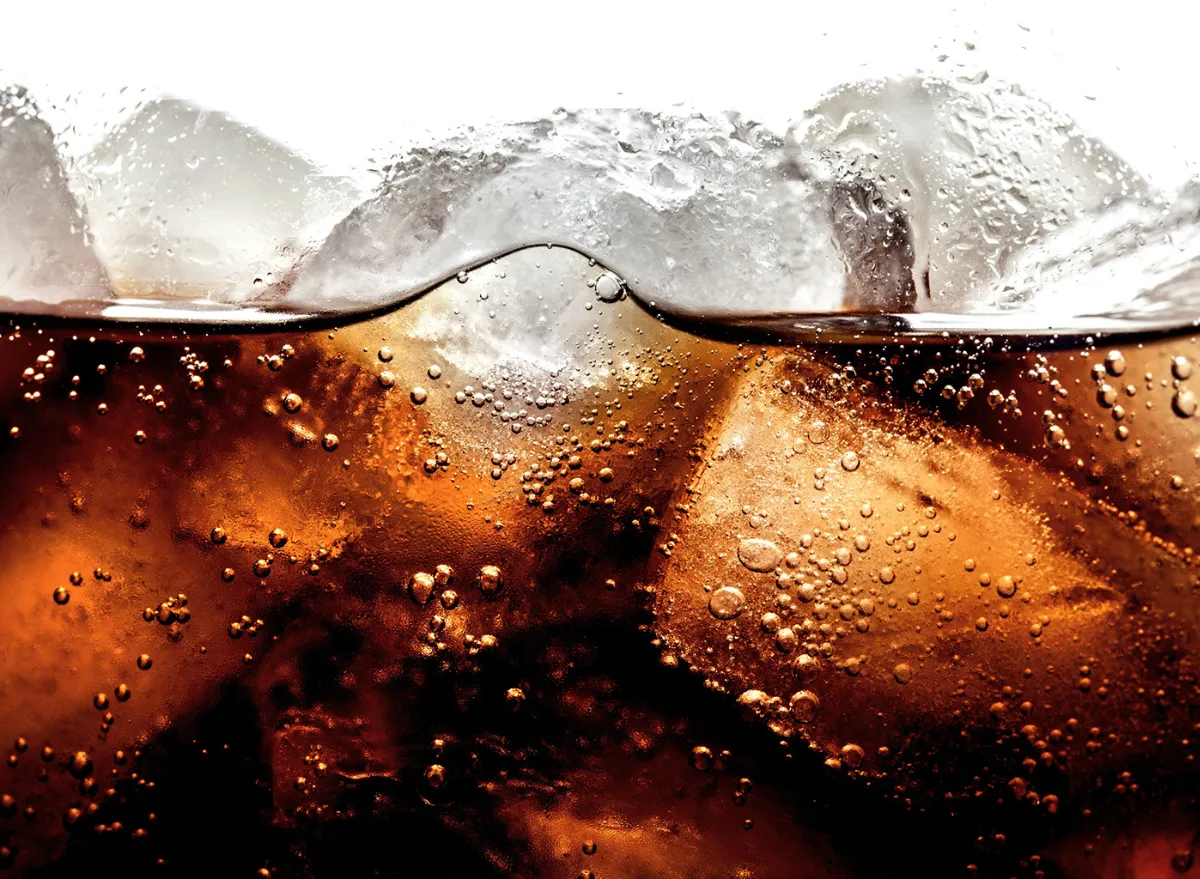While fans of diet soda might not want to hear this, it turns out that the seemingly healthier bubbly beverages might be doing more harm than good when it comes to weight loss efforts.
Artificial sweeteners remain controversial due to the fact that "the health consequences of artificial sweeteners or nonnutritive sweetener (NNS) are still highly debated," say the authors of a new study, published in JAMA Network Open. That's rather significant when you consider the fact that over 40% of American adults opt for drinks like diet soda, in part, because they believe it won't cause additional weight gain.
RELATED: Turns Out, Diet Soda Is Even Worse for You Than We Thought
In the study, researchers from the Keck School of Medicine of USC took a look at 74 participants who, after not eating the night before, were given drinks that contained either table sugar or an artificial sweetener. The researchers then monitored participants for brain activity related to cravings for high-calorie items while also noting the amount of food participants ate later in the day. What they found was that both women and obese participants were left hungrier after drinking artificial sweeteners.

"Our study starts to provide context for the mixed results from previous studies when it comes to the neural and behavioral effects of artificial sweeteners," Kathleen Page, MD, the corresponding author of the study and an associate professor of medicine at the Keck School of Medicine, explained in a statement.
Page added that, by examining different groups within the participants, they "were able to show that females and people with obesity may be more sensitive to artificial sweeteners." In fact, when it comes to these individuals, "drinking artificially sweetened drinks may trick the brain into feeling hungry, which may, in turn, result in more calories being consumed."
RELATED: Sign up for our newsletter!
However, Kris Sollid, RD, the Senior Director of Nutrition Communications at the International Food Information Council (IFIC), told Eat This, Not That!, "One reason that some view this as a 'controversial topic' is that conclusions from observational research studying the impact of low-calorie sweeteners on body weight often conflict with data from randomized controlled trials."
Sollid also notes that research backs the claim that low-calorie sweeteners "do not raise blood glucose levels or otherwise affect blood glucose management." Beyond that, he points out that the Scientific Report of the 2020 Dietary Guidelines Advisory Committee supports the use of low-calorie sweeteners in regards to weight management, adding "there is no strong evidence that [they] enhance appetite or cravings in humans."
If you'd rather avoid any controversy and simply stay away from diet sodas. Sollid suggests opting for fruit or 100% fruit juices whenever you need to satisfy your sweet tooth. For more tips on healthy sugar swaps, be sure to check out I'm an RD, and This Is The One Thing You Crave When You Give Up Alcohol!
"drink" - Google News
October 07, 2021 at 12:27AM
https://ift.tt/3Fn4n1a
The #1 Worst Drink for Weight Loss, New Study Finds | Eat This Not That - Eat This, Not That
"drink" - Google News
https://ift.tt/2STbaKe
https://ift.tt/2VWmZ3q
Bagikan Berita Ini














0 Response to "The #1 Worst Drink for Weight Loss, New Study Finds | Eat This Not That - Eat This, Not That"
Post a Comment